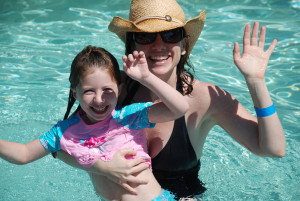 Parents often complain, “I sound just like my mother/father.” And you probably do sound like your parents. We learn to be parents by watching our own parents during our childhoods.
Parents often complain, “I sound just like my mother/father.” And you probably do sound like your parents. We learn to be parents by watching our own parents during our childhoods.
Yes, of course you do some things differently. Your parents may have been very strict about requiring you to finish your food before you were allowed to get up from the table, but you let your children decide when they are full. Consider that you learned this parenting skill by watching your parents and then doing the opposite. What if there were another way? What if, for example, we could negotiate with our children about what they eat and when, rather than having it be all our way or all theirs?
The more insidious things we learn from our parents are our emotional responses. Because they arise from the subconscious, we have less control about the expression of our emotions. When my children were small, I noticed that I was yelling at them a lot, and I also saw that they didn’t deserve it. That’s when I went into therapy and took the Process.
Our parents, in 90% of the cases, wanted only the best for us; they loved us, just as you love your children. But also in 90% of the cases, that love didn’t translate well to us as children. We grew up feeling as if there was something missing, that we were not good enough, that if only we could be different our parents would love us unconditionally. I stress here that your parents did the best they could. It is not their fault that you grew up feeling unloved.
If you learned to parent from your own mom and dad, and if your parents were unable to make you feel loved unconditionally, what does that say about your parenting of your own children? If you have a family, a job, friends, interests: do your children get enough of your time and energy to really feel loved?
One of the keys to becoming a better parent is to understand your own childhood in depth. This will help you work through the emotional issues associated with your childhood, particularly those that are lurking below the surface. It is these kinds of issues that make us angry, depressed, anxious, or simply too busy to spend quality time with our children.
How do we work through these issues? There are many paths. The Process is an experiential psychotherapy which can effectively address your childhood issues, help bring them to light, and give you a safe and confidential place to express your darkest feelings; it can bring you to a true, heartfelt understanding and compassion for your own parents, where you can forgive them for being imperfect parents. From there it is possible to find the same understanding, compassion and forgiveness for yourself.
Now you are able to become the more loving parent you want to be, and to choose your responses to your children instead of just reacting to them based on your own childhood programming. Not only will your children benefit, but you will also find that your life has more peace and joy. Your relationships, of all kinds, will improve, as will your self-esteem. Negative emotions –whether expressed or stifled — will no longer rule your life.
The message here is two-fold:
1) To become a better parent, you have to renew yourself, to invest in your own well-being, by addressing the issues from your own childhood; and
2) If you don’t think you have the time or money to address these issue while you have young children, think again: investing in yourself now pays double dividends, not only for you, but also for your children, as you affect their lives for the better.